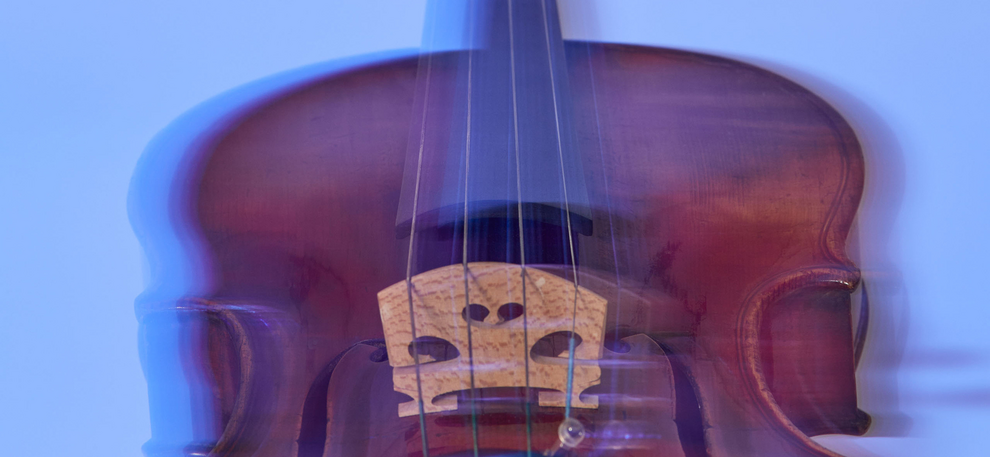So 22.03.2026, 11.00 Uhr | Elbphilharmonie, Kleiner Saal
4. Kammerkonzert
Ernst von Dohnányi: Streichsextett B-Dur
Jörg Widmann: „180 beats per minute“ für Streichsextett
Johannes Brahms: Streichsextett B-Dur op. 18
Violine: Kathrin Wipfler
Violine: Sawako Kosuge
Viola: Bettina Rühl
Viola: Yitong Guo
Violoncello: Tobias Bloos
Violoncello: Saskia Hirschinger
Kathrin Wipfler
ViolineKathrin Wipfler wurde 1992 nahe Stuttgart geboren. Sie war Jungstudentin bei Emily Körner in Stuttgart und studierte bei Elisabeth Kufferath in Hannover sowie ergänzend, im Rahmen eines Auslandsstudiums, bei Nora Chastain in Zürich. Während ihrer Studienzeit war sie fünf Jahre Stipendiatin der Landessammlung Streichinstrumente Baden-Württemberg. Sie bildete sich zudem auf zahlreichen Meisterkursen u.a. bei Nora Chastain, Mi-Kyung Lee, Donald Weilerstein, Mauricio Fuks und András Keller weiter. Als leidenschaftliche Kammermusikerin erhielt sie 2016 ein Stipendium für das Yellow-Barn Kammermusikfestival in Vermont, USA und hatte dort die Möglichkeit, gemeinsam mit Mitgliedern des Cleveland-, Juilliard und Brentano String Quartets zu arbeiten und gemeinsam aufzutreten. Weiterhin durfte sie sich bereits als Kammermusikpartnerin von Elisabeth Kufferath und Donald Weilerstein zählen. Orchestererfahrung sammelte Kathrin Wipfler als Praktikantin und ständige Aushilfe bei der NDR Radiophilharmonie Hannover sowie bei weiteren Aushilfstätigkeiten u.a. beim NDR Elbphilharmonieorchester und beim Staatsorchester Stuttgart. Seit 2018 spielt sie im Philharmonischen Staatsorchester Hamburg.
Sawako Kosuge
ViolineSawako Kosuge wurde in Tokio geboren und erhielt ihre erste musikalische Ausbildung an der Toho Gakuen School of Music, Tokio. Nachdem sie Orchestererfahrung in Japan sammelte, u.a. beim NHK-Sinfonieorchester und beim Tokyo Symphony Orchestra, kam sie 2018 nach Deutschland. 2021 schloss sie ihr Masterstudium an der Hochschule für Musik und Theater Felix Mendelssohn Bartholdy Leipzig bei Prof. Henrik Hochschild ab, und setzte ihr Studium an der Hochschule für Musik Carl Maria von Weber Dresden bei Prof. Ralf-Carsten Brömsel fort. In den Spielzeiten 21/22 und 22/23 war Sawako Kosuge Akademistin der Dresdner Philharmonie. Seit 2023 spielt sie im Philharmonischen Staatsorchester Hamburg.
Bettina Rühl
ViolaBettina Rühl studierte in Würzburg bei Rainer Schmidt und in Stuttgart bei Ingrid Philippi. Während dieser Zeit spielte sie bei der Jungen Deutschen Philharmonie und beim Philharmonischen Staatsorchester Hamburg als Praktikantin und belegte Meisterkurse etwa bei Serge Collot und Madeleine Prager. Kammermusikalisch trat sie u. a. mit dem Trio Giocoso (Viola, Klarinette, Klavier) und dem Ensemble Kontraste Nürnberg auf. Nach fünf Jahren als Solobratschistin am Pfalztheater Kaiserslautern wechselte Bettina Rühl 2001 zum Philharmonischen Staatsorchester Hamburg. Bei den Bamberger Sinfonikern und dem NDR Elbphilharmonie Orchester wirkt sie als Aushilfe mit. Musikalische Raritäten hörbar zu machen und Kammermusik wieder mehr ins Blickfeld zu rücken ist ihr ein großes Anliegen. Bettina Rühl ist häufig gefragte Kammermusikpartnerin u. a. in der Kammerkonzertreihe des Philharmonischen Staatsorchesters Hamburg und im ensemble acht. 2013 wirkte sie mit Kollegen bei der Gesamtaufnahme der Kammermusik von Felicitas Kukuck mit. Seit 2015 spielt sie im Orchester der Bayreuther Festspiele.
Yitong Guo
ViolaYitong Guo wurde in Lanzhou (China) geboren und wuchs in Beijing auf. Er studierte an der New Yorker Juilliard School, der Manhattan School of Music, an der Universität der Künste Berlin sowie am Mozarteum Salzburg. Derzeit setzt er sein Konzertexamen an der Hochschule für Musik und Theater Hamburg fort. Gleichzeitig ist er Lehrassistent für Viola an der HfMT Hamburg. Zu seinen Lehrern und Mentoren gehören Thomas Riebl, Pinchas Zukerman, Hartmut Rohde, Anna Kreetta, Patinka Kopec, Samuel Rhodes. Yitong Guo erhielt den 1. Preis beim International Clara Schumann Competition, den 2. Preis beim Hudson Valley String Competition, Young Artist Award des National Arts Centre in Kanada und den 5. Platz beim International Max Rostal Competition. Als Musiker hat er an verschiedenen Festivals und Meisterkursen teilgenommen, wie z.B. am Ravinia Festival, am Yellow Barn Festival, am International Musicians Seminar Prussia Cove und an der Seiji Ozawa International Academy. Seit 2020 ist Yitong Guo Bratscher im Philharmonischen Staatsorchester Hamburg.
Tobias Bloos
VioloncelloTobias Bloos erhielt zunächst Cellounterricht bei Martin Löher, ab 1994 dann bei Wolfgang Mehlhorn an der Musikhochschule Hamburg. Seit Oktober 2002 studiert er an der Universität der Künste Berlin bei Wolfgang Boettcher. Der gebürtige Hamburger ist 1. Preisträger verschiedener Wettbewerbe wie Jugend musiziert, des Domenico Gabrielli-Cellowettbewerbs, des Internationalen Kammermusikwettbewerbs Charles Hennen in Heerlen (Niederlande), des Internationalen Kammermusikwettbewerb in Caltanissetta (Italien) und er erhielt den Eduard-Söring-Preis der Stiftung zur Förderung der Hamburgischen Staatsoper. Tobias Bloos konzertierte u. a. bei den Festspielen Mecklenburg-Vorpommern und dem Schleswig-Holstein Musik Festival. Seit 2008 ist er festes Mitglied des Philharmonischen Staatsorchesters Hamburg.
Saskia Hirschinger
VioloncelloSaskia Hirschinger wurde 1995 in Halle an der Saale geboren und erhielt ab ihrem fünften Lebensjahr Cellounterricht bei Tamara Steger. 2014 begann sie ihr Studium bei Wen-Sinn Yang an der Hochschule für Musik und Theater München. Wichtige musikalische Impulse erhielt sie bei Meisterkursen von Wolfgang Boettcher, Frans Helmerson, Wolfgang Emanuel Schmidt, Jens Peter Maintz und Troels Svane. In der Spielzeit 2018/19 war Saskia Hirschinger Akademistin im NDR Elbphilharmonie Orchester. Im Anschluss daran setzte sie ihr Masterstudium bei Martin Ostertag an der Hochschule für Musik Karlsruhe fort. Zudem war sie Preisträgerin diverser Wettbewerbe und der Neue Liszt Stiftung Weimar. Saskia Hirschinger war Stipendiatin von „Live Music Now“ München und Trägerin des Deutschlandstipendiums. Orchestererfahrung sammelte sie als Cellistin im Staatsorchester Stuttgart sowie als Aushilfe im hr-Sinfonieorchester und im NDR Elbphilharmonie Orchester. Seit März 2020 spielt Saskia Hirschinger im Philharmonischen Staatsorchester Hamburg.
Die Klangwelten der Kammerkonzerte des Philharmonischen Staatsorchesters Hamburg sind so unterschiedlich wie die Charaktere der Musiker:innen, die darin agieren. Die Anforderungen im Orchestergraben sind oft durch die Größendimension und die Vielfalt der Stimmen geprägt. Kammermusik hingegen reduziert diese Dimension auf kleinere Ensembles und ermöglicht eine intime musikalische Interaktion. Wie in einem Dialog treffen verschiedene Meinungen aufeinander, neue Ideen entstehen, entwickeln sich während des Spiels und eröffnen so einen kreativen Raum für spontane Entfaltung.





